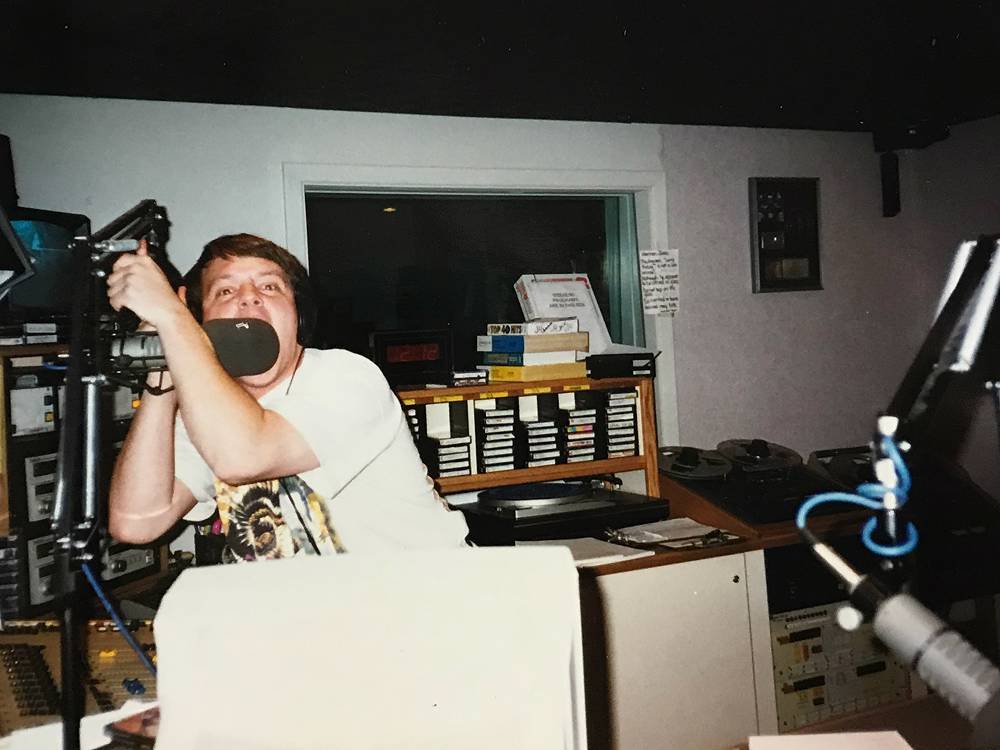Being a radio DJ made autistic sense
posted by Jeff | Thursday, August 18, 2022, 9:33 AM | comments: 0I had yet another revelation about my life in the context of autism. My childhood obsession with radio and being a DJ, in retrospect, was just about the perfect thing for me.
Not feeling a sense of belonging, really anywhere, can be a lonely thing. The unlikely recurring theme of my life often involves feeling happiest when alone, despite wanting to be a part of something. But the magical voice coming out of the speakers was in a room somewhere entertaining others, millions at a time, the way I understood it. It was being at the center of everything, alone, and without the judging eyes of others.
High school was rough, especially after moving to the suburbs of Cleveland from the inner city. I went from being the goofy, likable white kid to the kid from the "ghetto." Even the nerds picked on me in grade nine. But just before I moved, my old high school did a field trip to Kent State, and I saw their radio and TV facilities. I wanted to do that. Through a series of fortunate events, I started announcing lineups at volleyball games the next year. It was oddly comfortable, because even though people could see me, I was hiding behind amplification, and everyone was looking at the players.
My first week of college, at Ashland University, I found myself in the WRDL studio. Filled with adrenaline, I introduced my first song on the air, and I never felt more comfortable. Before too long, I was doing two shifts a week and covering for anyone I could. I couldn't wait for the next time I did it.
With practice, it started to become easy for me. I could wing it with minimal preparation, and because I loved music and instinctively understood its patterns, I could mix top-40 style, which is to say never stop the music and talk over the out and in of the songs, and "hit the post" every time. When my bit ended, the singing started.
My senior year, I started working at a commercial station, and my program director, Matt Anthony, was my first legitimate professional mentor. He was a radio and voiceover guy to the core, and he was good. He taught me a lot about how facial expressions were audible, and the listener in your mind could influence your conversational tone. I often imagined people sitting in their room listening, and looking at their radios.
So if the pattern recognition wasn't enough, and the button pushing and tech, I was essentially able to interact socially, but one-sided. It felt like I was having all the socialness without the anxiety of wanting to belong. Of course, when I started to do it full-time, working overnights, it was incredibly lonely. On one hand, here I was, right out of college, fulfilling my childhood ambitions, but I was alone in a small room talking to no one and still living at home. It felt great at first, but when the book came out and the midday ratings sucked, they decided to put the midday guy overnight because he had a contract and they had to pay him anyway, and I was back to part-time weekends. (The midday guy was pretty terrible.) I did it for one more week, and then didn't see the inside of a radio station for 13 years, when I went back to visit my college station.
This is another thing in my life that I find makes more sense in the context of a middle-aged guy getting an ASD diagnosis. People with autism are everywhere, most adults don't know they fall on that spectrum, and frankly we need to think through whether or not it's a "disorder" in all forms.
Comments
No comments yet.
